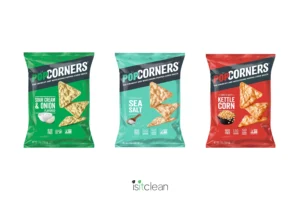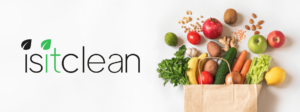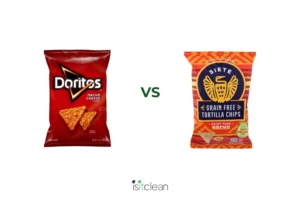
Acesulfame potassium is a zero-calorie sweetener that is added to many sugar-free…



Rapeseed oil is a vegetable oil derived from the seeds of the rapeseed plant (Brassica napus or Brassica rapa). To produce rapeseed oil for use in foods, the seeds of the plant are crushed to extract the oil. The oil is then refined, which involves processes like degumming, neutralization, bleaching, and deodorization to remove impurities. Rapeseed oil and canola oil are often used interchangeably, however, canola oil is a genetically modified version of rapeseed oil that is engineered to contain less erucic acid and glucosinolates. Aside from being used as a cooking oil, rapeseed oil is commonly found in packaged foods, dressings, spreads, and baked goods.

Rapeseed oil contains erucic acid, a fatty acid that has been linked to negative health effects in animal studies and as it is not fully metabolized in the human body, high consumption may result in the formation of harmful triglycerides. While unrefined rapeseed oil contains many beneficial nutrients such as vitamin E and antioxidants, the refining process of rapeseed oil uses high heat and chemical solvents which may result in the formation of volatile compounds, trans fats, and cause a significant loss in nutrients. While some studies have suggested health benefits of cold rapeseed oil supplementation, consuming oil cold cannot be compared to consuming heated oil that is rich in polyunsaturated fats, as these fats can oxidize when heated and form harmful compounds.
Health is like a bank account, certain ingredients make a deposit into your health bank, meaning they add to
your health. Certain ingredients withdraw from your health bank. We want health promoting ingredients in our diet. To keep things simple, we rate ingredients on a green, yellow, red scale:

It is naturally occurring in food and has no harmful effects on the body. It is real food. It is health promoting.

It goes into one or more of the below categories

It is known to have a harmful effect on the body (ex. All food colorings, Natural Flavors, MSG, Potassium bromate, aspartame, artificial flavors)



The Food Showdown: Popcorners flavors
Ingredient Rating: Canola oil – is it bad for you?
Clean Consuming: Nourishment for your

We have accomplished so much in just 1 year since our launch in March of 2023! We now have 10,000

The Nacho Chip Food Showdown, is Tapioca Starch safe in food? and a must-see documentary on America’s food system.
Stay in the know with the latest ratings, articles, and our newsletter, The Dirt.